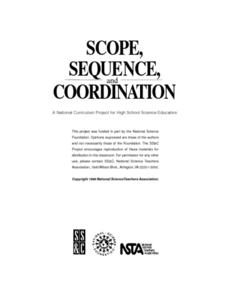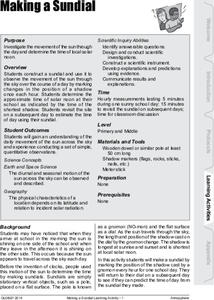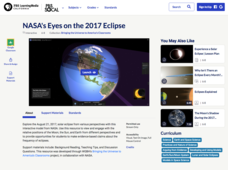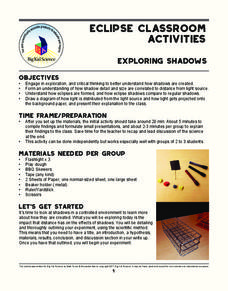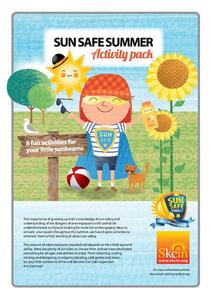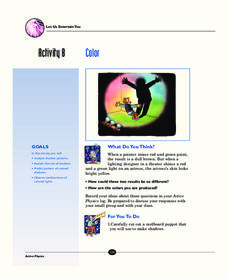Astronomical Society of the Pacific
Getting Ready for the All American Eclipse!
Give your pupils a front row seat at the biggest light show in the sky this year! In addition to admiring the total solar eclipse, young astronomers can explain the phenomenon with a little help from an inquiry-based lesson. The focus of...
Scholastic
Will He See His Shadow? Groundhog Day Activities
What a fantastic collection of activities for celebrating Groundhog Day! This resource includes a variety of holiday reading selections, groundhog facts, links to printables, story comprehension lessons, and much more!
Scholastic
Study Jams! Light
Let there be light in your classroom with a video that explains that light travels in waves, the electromagnetic spectrum contains seven colors, and the color of an object depends on which light waves it reflects and absorbs. With...
Curated OER
Seein' Double, Seein' Double
By using the Internet, hands-on activities, video, and cooperative learning, pupils look into the conditions in which light casts shadows on objects. The lesson includes fabulous hands-on activities, art projects, worksheets, and reource...
Curated OER
Wave Phenomena and the Electromagnetic Spectrum
Science learners scrutinize shadow size and quality, and experiment with diffraction. They model superposition of electromagnetic waves, and experiment with interference. These activities are action-packed and challenging for your...
Curated OER
Story Telling through Photography
Use this writing and photography lesson plan in your descriptive writing unit. Elementary and middle schoolers write and create a story line incorporating photos from Inspiration or their own personal photos. They experiment with...
GLOBE Program
Making a Sundial
Sundials are more than just primitive clocks. Learners build their own sundials to study the location of the sun across the sky throughout the day. They use shadow evidence related to their sundials to make conclusions about solar movement.
American Chemical Society
Designing a Shade Structure
Bring the learning outdoors with an enjoyable activity about Earth's heating, sunlight, and shade. Scholars use problem-solving skills as they design, build, and test a sunshade structure. Participants view a video summarizing the...
Space Awareness
Making A Sundial
Can people really measure time just by using the sun? Scholars venture outside on a nice, sunny day to build sundials and learn how people measured time 600 years ago. The class builds two different sundials while gaining practice with...
Purdue University
Global Design for the Seasons
People don't all get the same amount of sun at the same time of the year. Collaborative groups explore how the motion of Earth contributes to the idea in an inquiry-based STEM lesson. Learners first investigate how the rotation of Earth...
PBS
NASA's Eyes on the 2017 Eclipse
How did the 2017 eclipse look in Los Angeles—or Chicago? Experience both views, plus many more, using a lesson from PBS's Space series for middle schoolers. Scholars follow the movements of the sun, moon, and Earth during the most recent...
Magic of Physics
Shadows
Sunrise, sunset ... swiftly move the shadows! Pupils practice comparing shadow length data with a hands-on activity. The resource allows users to examine and measure the shadow cast by a stick as the sun moves overhead before testing...
CK-12 Foundation
Seasons: Shadow Lengths
Before iPhones and calendars, how did humans determine the seasons of the year? Middle school scientists discover how to use shadows to determine the time of year in an enlightening interactive. Pupils manipulate the sun and examine the...
Big Kid Science
Exploring Shadows
What's that lurking in the shadows? An activity that demonstrates how eclipses happen. Science scholars investigate how light and distance interact to form shadows. The experiment uses simple materials to generate data and observations...
Big Kid Science
Measuring Shadows Using an Ancient Method
How did ancient peoples determine the height of really tall objects? Young scientists and mathematicians explore the concept of using shadows to measure height in a hands-on experiment. Paired pupils measure shadows, then calculate the...
Space Science Institute
The "All American" Eclipse Guide
Are you ready for the biggest astronomical event of the year? More importantly ... are you ready to share it with your scholars? Use a presentation filled with facts and diagrams to make sure everyone in class understands the importance...
Skcin
Sun Safe Summer Activity Pack
Eight activities make up a packet all about sun safety. Scholars mix and match how animals stay sun safe, dress paper dolls in appropriate summer clothing, make a cootie catcher, solve word puzzles, grow sunflowers, examine pictures,...
CK-12 Foundation
Pythagorean Theorem to Determine Distance: Tree Shadows
Why is that shadow getting longer? Determine the changes in the length of a shadow as the sun changes position in the sky. Individuals use an interactive to calculate the length of a shadow at different times during the day via the...
Star Date
Shadow Play
Three activities make up a solar system lesson that features the sun, its light, and the shadows it produces. Scholars step outside to discover the changes shadows make at different times of day, take part in a demonstration of how Earth...
Mathematics Assessment Project
Deducting Relationships: Floodlight Shadows
Try to figure out what happens with shadows as a person moves between two light sources. A formative assessment lesson has individuals work on an assessment task based on similar triangles, then groups them based on their assessment...
It's About Time
Color
How can a hand puppet's shadow look like a dog? The lesson explains the science behind shadows, combining paint colors and the colors used in old televisions. Scholars use white, red, blue, and green lights to experiment with colors and...
National Science Teacher Association
Middle School Sampler: Science
Focus on inquiry-based learning in your science class with a series of activities designed for middle schoolers. A helpful packet samples four different texts, which include activities about predator-prey relationships, Earth's axis and...
K5 Learning
The Moon
Second graders read a short informational text passage about the moon and answer a series of questions based on what they read.
North Carolina Museum of Natural Sciences
Weather Watch Activity Guide: Groundhog Day
Exactly what do groundhogs know about weather? Not as much as your science students will after completing these lessons and activities that cover everything from the earth's rotation and the creation of shadows, to cloud...






